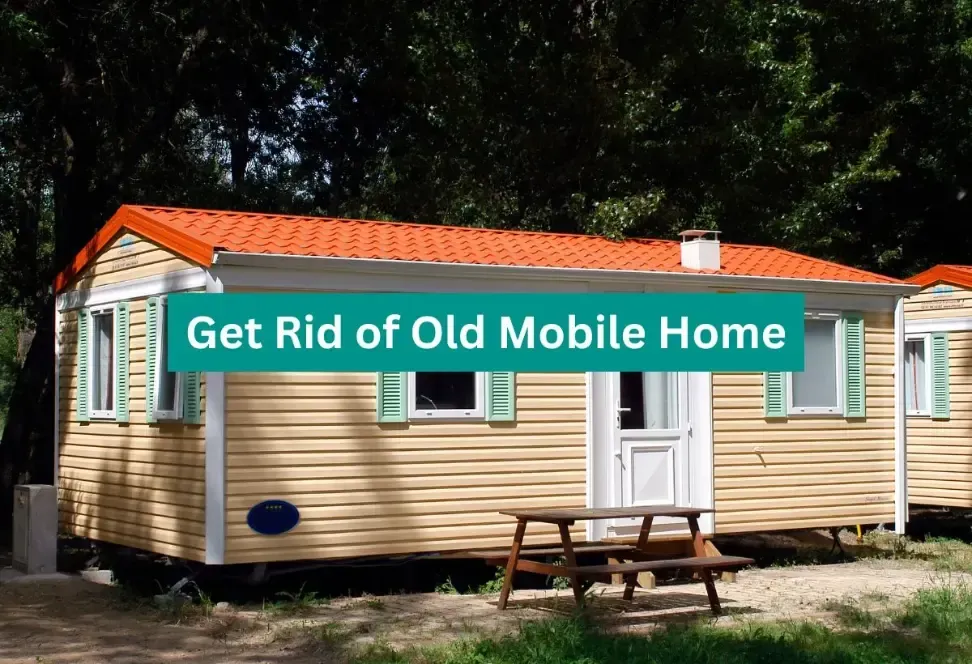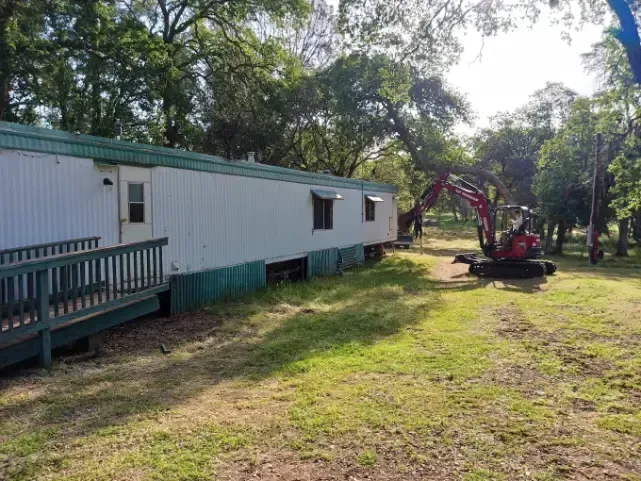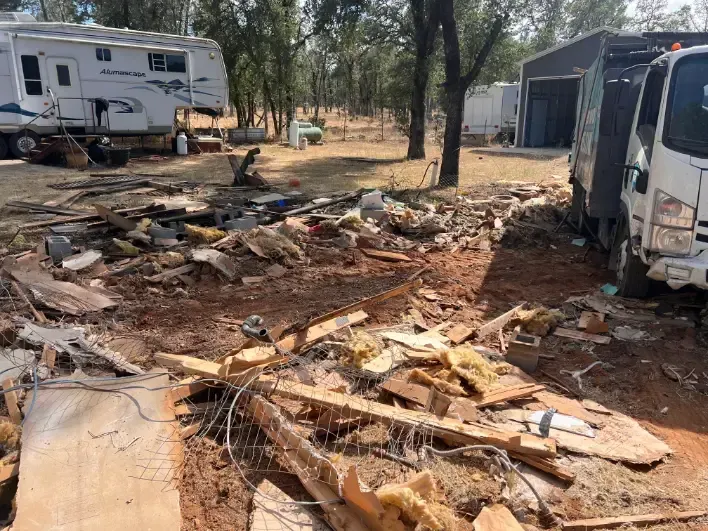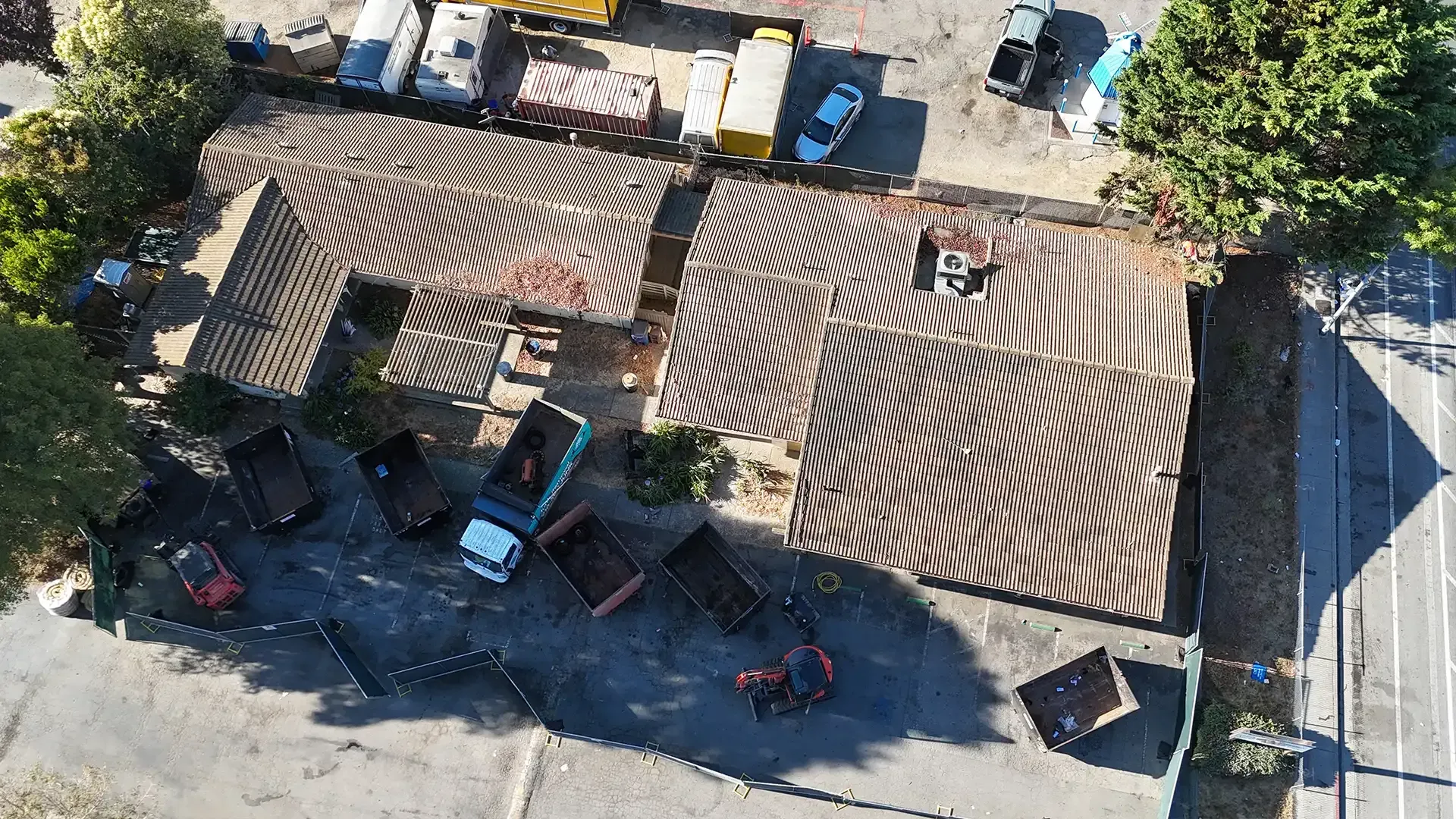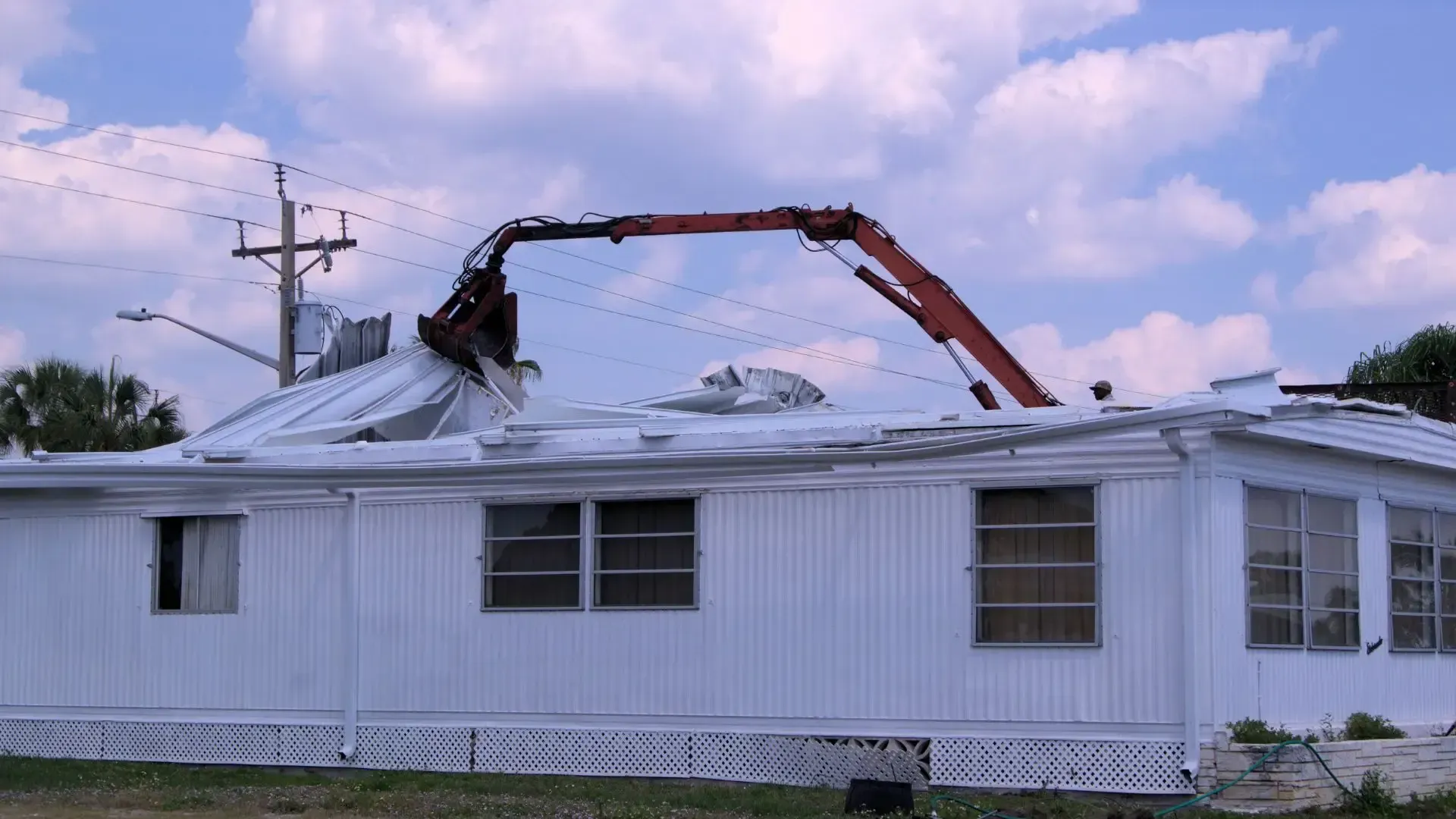Junk Mobile Home Removal in Sacramento, CA – Safe, Fast, and Hassle-Free
Old mobile homes don’t age gracefully. Over time, they break down, become unsafe, and can even violate local housing and zoning laws. Maybe yours has water damage, faulty electrical wiring, or structural issues that make it unlivable. Maybe you’re planning a new build and need to clear the land.
Whatever the reason, removing a mobile home isn’t as simple as hauling it away. There are permits, legal requirements, demolition processes, and disposal rules to follow. Doing it wrong can lead to hefty fines—or worse, a safety disaster.
That’s why we put together this step-by-step guide to help you navigate the process of junk mobile home removal in Sacramento, CA. By the end, you’ll know exactly what to do and who to call for a safe, legal, and hassle-free removal.
The Growing Need for Mobile Home Removal in Sacramento
Sacramento County, like many places in the US, is seeing a big rise in the need for mobile home removal. There are several reasons for this trend. Old mobile home parks, changing property values, and a want for new development projects all matter.
As mobile homes get older, they often need many repairs and updates. These can be very expensive for owners. Also, old designs and materials may not meet today's building rules or the style preferences of many homeowners. This growing need for mobile home removal shows how important skilled demolition contractors in Sacramento are.
Signs It’s Time to Remove Your Mobile Home
Some mobile homes hold up over time—others don’t. If yours is becoming more trouble than it’s worth, clearing it out might be the best move.
- It’s falling apart. Rotted floors, a sagging roof, or a weak foundation make it unsafe.
- The wiring is outdated. Flickering lights, sparking outlets, or frequent breaker trips mean fire risks.
- Mold, pests, or water damage are taking over. Musty smells, crumbling walls, and infestations only get worse.
- Repairs never end. If fixing one thing leads to another costly issue, it’s time to let it go.
- Zoning or property changes demand it. If rules shift or new plans are in place, the home needs to go.
Exploring Mobile Home Removal Methods
When it comes to removing a mobile home, people in Sacramento have different choices. Each choice has good and bad points. The best option for you will depend on several factors. This includes the condition of your home, your budget, and what you want to do with the property afterward. Here are the most common methods: towing and relocation, full demolition, and deconstruction and salvage.
Thinking about your situation will help you choose the best option. This way, you can meet your needs and goals while making the removal process easy and stress-free.
Towing and Relocation: A Second Life for Usable Homes
If your mobile home is in good shape, moving it can be a smart and cheap choice instead of tearing it down. This process involves safely turning off its utilities, getting it ready to move, and towing it to a new spot.
This is a great option if you want to sell your mobile home. It lets the buyer take it to where they want. Make sure the mobile home follows the transportation rules. Also, hire skilled people to do the towing. This will help avoid any damage.
Here’s why moving it makes sense:
- Eco-Friendly: It reduces waste from demolition.
- Cost-Effective: It’s often cheaper than full demolition for mobile homes that are still good.
Full Demolition: Quick and Cost-Effective Solutions
If the mobile home is too damaged to repair or you need the area cleared quickly, full demolition is the best option. Skilled demolition workers use heavy machinery, like excavators and bulldozers, to safely take down the building. They then carefully collect the debris and remove it for proper disposal.
Though it may seem easy, full demolition needs careful planning and execution for safety and to protect the environment. Working with a professional demolition company makes sure that everything is done correctly and follows local regulations.
Here are some important points about full demolition:
- Speed: It's the quickest way to clear the property.
- Site Clearing: It completely removes the structure and its foundation, allowing for new construction or landscaping.
Deconstruction & Salvage: An Eco-Friendly Approach
For those who care about the environment, deconstruction and salvage provide a smart way to remove mobile homes. This method takes the mobile home apart piece by piece. The goal is to save materials that can be reused, such as appliances, fixtures, windows, and lumber.
The saved materials can be given to charities, sold to reclaim companies, or used in new building projects. This method helps reduce waste in landfills and cuts down the need for new supplies, making it a green choice. However, keep in mind that deconstruction can take more time and effort compared to complete demolition, which may change the overall cost.
Here’s what makes deconstruction and salvage special:
- Sustainability: It helps keep waste out of landfills and supports saving resources.
- Charitable Impact: Salvaged materials can be given to help organizations or people who need it.
Understanding Sacramento’s Legal Requirements
Tearing down a mobile home isn’t as simple as bringing in a bulldozer and calling it a day. Sacramento has strict regulations, and skipping the legal steps can lead to headaches—big ones. Think fines, project delays, or worse, problems when you try to sell the property later.
Permits You Need to Remove a Mobile Home
Before any demolition begins, Sacramento County requires permits—just like for any other structure. These permits aren’t just red tape; they exist to keep things safe, legal, and organized.
✔️ The demolition follows California’s safety laws.
✔️ Hazardous materials (like asbestos or lead paint) are handled properly.
✔️ Utilities—gas, water, and electricity—are disconnected the right way.
Skipping this step can turn a simple demolition into a major problem.
What Happens If You Ignore the Permit Process?
Cutting corners might seem like a way to save time, but it usually backfires. Here’s what can happen if you try to demo without the right paperwork:
🚨
Fines from the city that can cost you more than just getting the permit in the first place.
⏳
Unnecessary delays that bring your project to a screeching halt.
🏚️
Trouble selling the land later, since unpermitted work can cause issues with buyers and lenders.
Permits may seem like a hassle, but Demo Patrol handles the entire process for you. No stress, no legal worries—just a job done the right way from start to finish.
Why Professional Assistance Ensures Compliance
Navigating the legal rules and getting permits can be hard for homeowners. Using professional demolition services makes this easier. They help you stay within the laws during the mobile home removal process. Good demolition contractors know Sacramento County's rules and have connections with local officials.
Their qualified team takes care of getting all the necessary permits. They make sure that all paperwork is filled out correctly and submitted on time. This helps avoid delays or problems. When you let experts handle the legal side, you can focus on other important parts of your project without worry.
Getting a Mobile Home Ready for Demolition
Before the first piece comes down, there’s some prep work to do. A demolition site isn’t just about knocking things over—it needs to be safe, clear, and ready for the heavy equipment that’s about to roll in.
1. Shut Off Utilities
Mobile homes are connected to power, water, and gas, and all of that needs to be disconnected properly before any demolition begins. Skipping this step isn’t just risky—it can be dangerous.
Call utility providers to turn off and disconnect all services.
Shut off and cap gas lines to avoid leaks.
Drain plumbing and sewage to prevent contamination.
This isn’t something to rush through. A professional demolition crew makes sure everything is handled the right way so the project can move forward safely.
2. Salvage What Can Be Saved
Not everything in a mobile home belongs in a landfill. Some materials still have value and can be reused, donated, or recycled.
Here’s what can often be salvaged:
✔️
Metal (aluminum siding, steel beams, copper wiring)
✔️
Wood (paneling, flooring, doors)
✔️
Windows, cabinets, and fixtures
A demolition team like Demo Patrol knows what’s worth saving and what needs to go. They’ll separate materials so nothing useful gets tossed unnecessarily.
3. Make Space for the Equipment
Demolition is a big job, and big jobs need space. Excavators, dump trucks, and other heavy machinery need room to operate.
Remove personal items and furniture before work starts.
Move vehicles, sheds, or anything blocking access to the site.
Give neighbors a heads-up so they’re not caught off guard by the noise and activity.
Once everything is out of the way, it’s time for Demo Patrol to get to work.
Bringing the Mobile Home Down
The prep work is done, and the demolition begins. Demo Patrol follows a methodical process that keeps the site safe and the job on track.
1. Safety Checks & Final Walkthrough
Before the first wall comes down, the team does a final safety check:
Inspecting the structure to spot potential hazards.
Setting up barriers to protect nearby areas.
Controlling dust, debris, and noise so the process doesn’t create unnecessary disruptions.
A rushed demolition is a bad demolition—this step makes sure everything goes smoothly.
2. Taking It Apart
With safety measures in place, the teardown begins. Heavy-duty equipment makes quick work of the structure, while the crew ensures everything is handled carefully.
Excavators break down the roof and walls piece by piece.
The frame and flooring are dismantled and loaded up for removal.
Salvageable materials are separated from waste to avoid unnecessary disposal.
This process is quick but controlled—precision is key.
3. Clearing Out the Debris
Once the structure is gone, what’s left behind? A lot of debris. Demo Patrol doesn’t just knock things down and leave—they clean up everything.
Wood, drywall, and insulation are hauled away.
Metal beams and framing are collected for recycling.
Hazardous materials are handled according to California regulations.
When the job is done, the land is left clear and ready for whatever comes next.
What Happens to All That Waste?
Not everything needs to go straight to the dump. A lot of materials can be reused, recycled, or properly disposed of in a way that’s better for the environment.
Materials That Can Be Recycled
Metal (steel, aluminum, copper wiring) – Sent to recycling facilities.
Wood (if untreated and still in good shape) – Repurposed or donated.
Glass & Windows – Salvaged when possible.
How Much Does It Cost to Remove a Mobile Home?
The cost of tearing down a mobile home isn’t fixed—it depends on a few key factors. Some homes are small and easy to remove, while others require more time, equipment, and disposal work. Here’s what affects the final price:
Size of the home – The bigger the structure, the more time and effort it takes to bring it down.
Location and accessibility – A home on an open lot is simpler to demolish than one tucked between buildings or in a tight space.
Disposal fees – Dumping costs vary based on materials, with some being easier (and cheaper) to recycle than others.
Permit costs – Sacramento County requires proper paperwork, which comes with its own fees.
Hazardous materials – If asbestos, lead paint, or other hazardous materials are present, they need special handling, which adds to the cost.
Why Choose Demo Patrol for Mobile Home Removal in Sacramento?
Licensed & OSHA-Certified (C-21 License #1117491) – We have the experience and credentials to get the job done right.
Handles all permits and legal requirements – You don’t have to worry about paperwork or compliance.
Fast, safe, and reliable demolition – We stick to the schedule and prioritize safety at every step.
Full-service removal – From teardown to
cleanup and debris removal, we take care of everything.
Eco-conscious disposal – We recycle whenever possible to reduce waste and keep materials out of landfills.
Ready to Remove Your Old Mobile Home? Let’s Get It Done!
Don’t let an old, rundown mobile home take up valuable space. Whether you need a full mobile home demolition or just a cleanup, Demo Patrol makes the process quick, safe, and stress-free.
📞
Call us today at 916-409-6879 for a
free estimate
💻
Or request a quote online—we’ll get back to you fast!
Let’s clear the way for something new!
Frequently Asked Questions
-
How long does it take to remove a mobile home in Sacramento?
The time it takes to remove a mobile home in the Sacramento area can change based on the size and condition of the home and the method used for removal. Most of the time, if you have a skilled demolition contractor, the entire project can be done in about 1 to 3 days.
-
Do I need a permit to take down a mobile home in Sacramento?
Yes, you do. Sacramento County requires permits for mobile home demolition, just like any other building removal. The permit process helps make sure the teardown follows local rules, utilities are shut off correctly, and hazardous materials—like asbestos—are handled the right way. Demo Patrol takes care of the permits for you, so you don’t have to deal with the paperwork or stress about getting it approved.
-
How long does it take to remove a mobile home?
Most demolitions take one to three days from start to finish. The exact timeline depends on the size of the home, how easy it is to access, and how much debris needs to be hauled away. If the home has hazardous materials, extra time may be needed to handle them properly.
-
What happens to all the debris?
It doesn’t just sit there—we clear everything out. Demo Patrol sorts and hauls away all materials, making sure anything reusable, like metal, wood, and glass, gets recycled. Anything that can’t be salvaged is disposed of legally, following California’s environmental laws.
-
How much does mobile home removal cost?
It depends. Pricing is based on factors like the size of the home, where it’s located, permit fees, and how much debris needs to be dumped. If there are hazardous materials, disposal costs may be higher. Demo Patrol offers free estimates with no surprise fees, so you’ll know exactly what to expect.
-
What can I do with the land once the mobile home is gone?
That’s up to you! Many people use the space for a new home, a garage, or an outdoor space like a garden or patio. Some sell the cleared lot. Whatever your plans, Demo Patrol leaves the land clean and ready for the next step.
-
What is the easiest way to handle a mobile home demolition?
The easiest way to remove a mobile home is to hire a professional demolition team that handles everything from utility disconnections to debris removal. A licensed crew can take care of permits, safety checks, and final cleanup, so you don’t have to deal with the stress of doing it yourself. Demo Patrol makes the process simple and hassle-free, handling every step from start to finish.
-
Do you offer interior demolition along with full mobile home removal?
Yes! If you need interior demolition before a full teardown, we can remove walls, flooring, and fixtures while keeping the structure intact. This is a good option if you're planning to remodel instead of completely removing the home. We also offer concrete removal, which is useful if the home has a foundation or patio that needs to go.
-
How do you handle hazardous materials like black mold during demolition?
Health and safety are our top priority, especially when dealing with hazardous materials like black mold. Our team wears personal protective equipment and follows strict procedures to safely remove contaminated materials. If mold is found inside a demolition project, we take extra care to prevent the spread of spores and dispose of affected materials properly.
-
Can you remove other unwanted structures on my property?
Absolutely. We don’t just specialize in the removal of mobile homes—we can also tear down unwanted structures like old sheds, garages, and decks. Whether you’re clearing space for a new build or just getting rid of something that’s no longer needed, Demo Patrol can handle the job safely and efficiently for both residential clients and commercial properties.
-
What type of work is involved in mobile home removal?
Removing a mobile home isn’t always an easy task, but with the right crew, it doesn’t have to be overwhelming. The type of work involved includes disconnecting utilities, tearing down the structure, removing debris, and cleaning up the site.
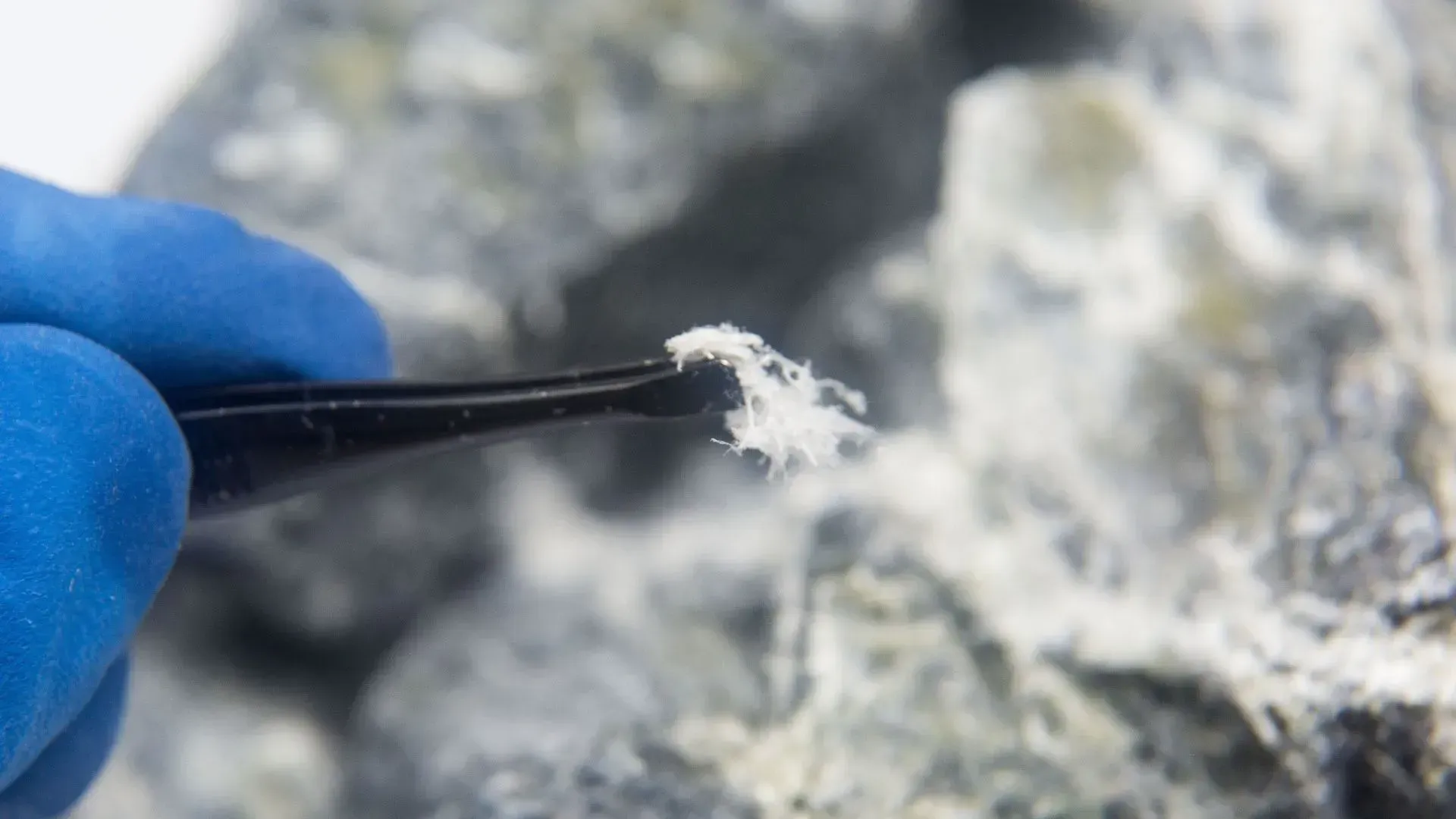
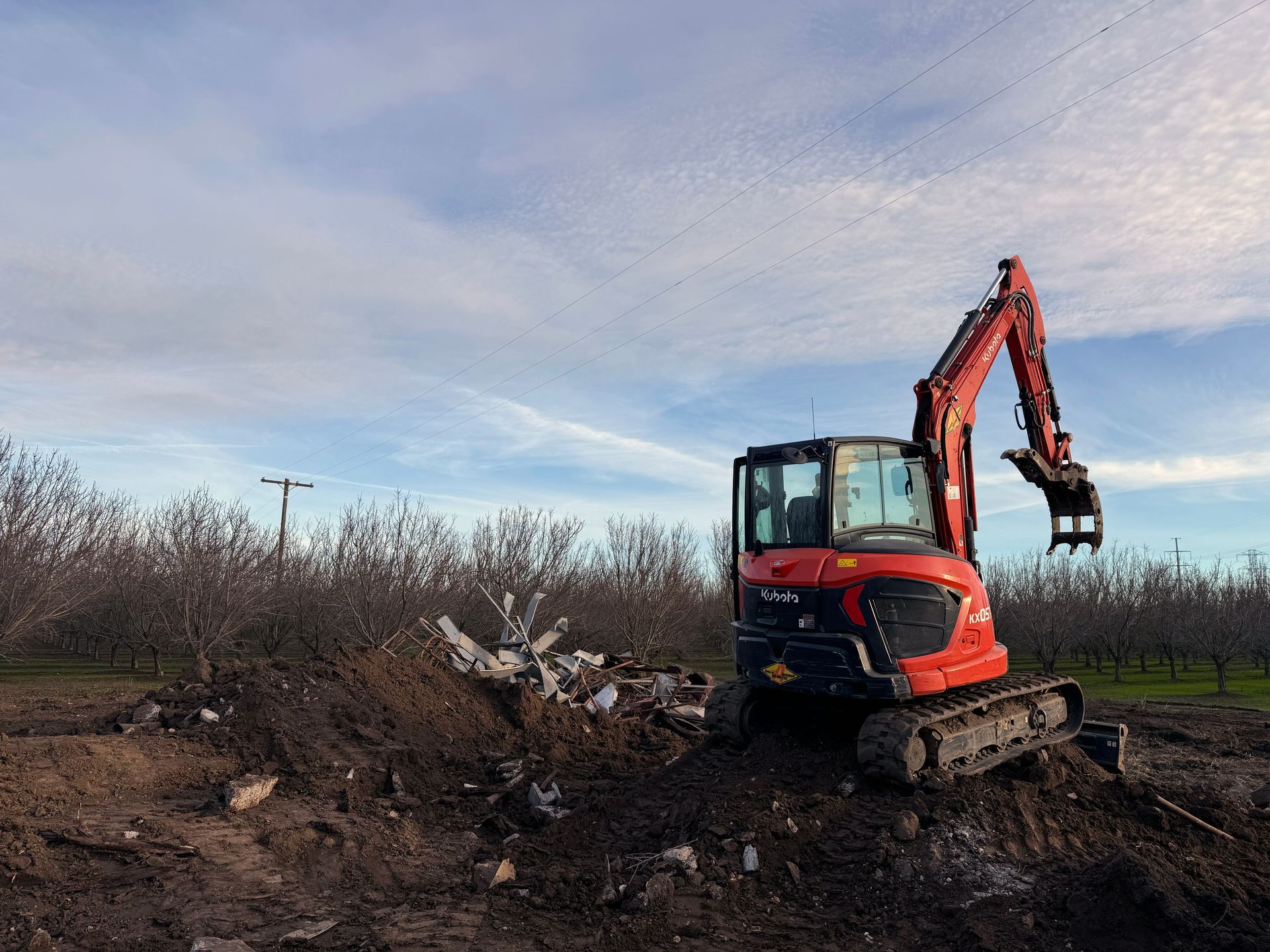
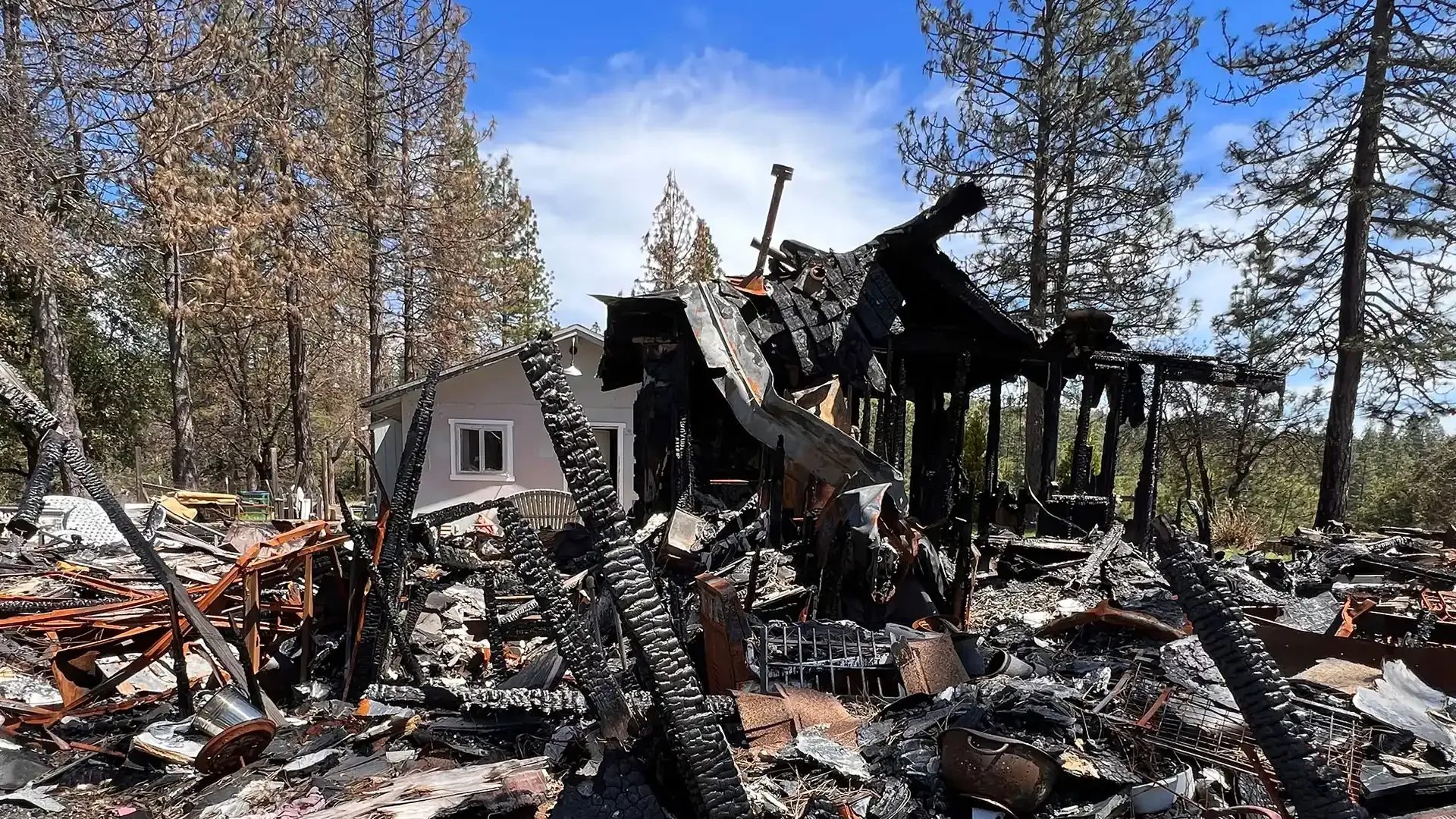
CONTACT INFO
Phone Number: 916 409 6879
OSHA-10 Certified Contractor
Licensed For Demolition In California
All Rights Reserved | Demo Patrol | Website Designed by Blue Crocus Solutions | Privacy Policy | TOS

